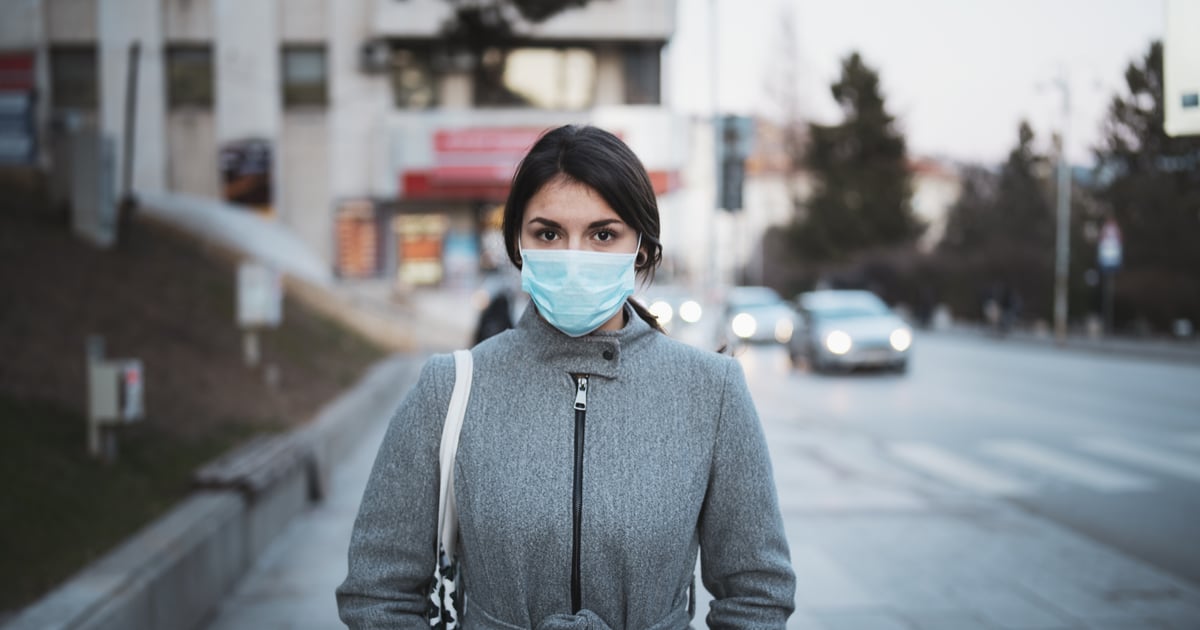
Over the past few months, face masks have emerged as an effective way to slow the spread of the coronavirus. The CDC began recommending cloth face masks for public use back in April, and since then, they’ve become a common sight in restaurants, businesses, and gyms. Guidelines are slowly evolving as doctors learn more about the virus, so if you’re still confused over when and why you should wear a face mask, keep reading; we’ll talk about the right kind to buy, how to make sure your mask fits correctly, and what else you can do to protect yourself and others.
The Difference Between Surgical Masks, N95 Respirators, and Cloth Masks
Let’s differentiate between the types of face masks you see most commonly: surgical masks, N95 respirators, and cloth face masks. Surgical masks are thin paper masks that are intended to obstruct the flow of germs and pathogens from the wearer to the people around them (not the other way around). N95 respirators, on the other hand, are thicker, more fitted, and more effective at blocking transmission of viruses and other particles in both directions: from the wearer to others, and from others to the wearer.
N95 respirators are typically intended for healthcare professionals, who are required to undergo training to ensure correct use. Currently, the CDC does not recommend that the general public wear N95 respirators and says that even healthcare providers should only wear them in medical settings.
Cloth face masks, however, are now advised for use in public spaces. The CDC recommends the following for cloth face masks:
- They should fit snugly on the sides of your face. (Here’s a hack for tightening your face mask if it’s loose.)
- They should secure with ties or ear loops.
- They should have multiple layers of fabric.
- They should allow you to breathe comfortably, without restriction.
- You should be able to wash them in a washing machine and drier without damaging the shape.
If you’re looking for cloth face masks to buy, here are some good options, plus more information on what kind of cloth face masks are most effective.
When Should I Wear a Face Mask For Coronavirus?
N95 respirators are not recommended for public use. “We need them in the hospitals. We need them for healthcare providers,” said Aruna Subramanian, MD, an infectious-disease doctor and clinical medical professor at Stanford. Hoarding these kinds of essential protective tools increases the danger for doctors, nurses, and first responders, who are already at higher risk of infection.
In the US, the CDC is now recommending the use of cloth face masks in public areas. These reusable masks are considered most effective at blocking the transmission of the virus from the wearer to others, although new research is now showing that they may also provide some protection to the wearer. It’s essential to wear face masks in public areas, particularly because 40 percent of COVID-19 cases may be asymptomatic, according to a CDC estimation. By wearing a mask, even if you aren’t showing symptoms, you lessen your likelihood of passing the coronavirus on to someone else. This is a tangible way you can help to prevent the spread of COVID-19.
According to the World Health Organization, you should also wear a face mask if you’re experiencing symptoms of the coronavirus, which include a fever, cough, and difficulty breathing, or if you’re taking care of someone experiencing symptoms. (Here’s more about coronavirus symptoms to look out for.) Most restaurants and businesses are also requiring face mask use.
How Else Should I Protect Myself From the Coronavirus?
The best way to protect yourself is to wear a mask and continue to implement other safety measures. Here’s what to do:
- Stay six feet away from others.
- Wash your hands often and for at least 20 seconds each time. Use soap and water. If you don’t have access to soap and water, use hand sanitizer that’s at least 60 percent alcohol (ethanol or isopropanol).
- Clean and disinfect frequently touched objects and surfaces using a disinfecting spray or wipe. (Here’s more on the types of cleaning supplies that fight the coronavirus.)
- Avoid touching your nose, mouth, and eyes.
- Avoid close contact with people who are sick.
- If you decide to use a mask, follow proper usage protocol. Wash your hands before you put on the mask, avoid touching the front of the mask while you wear it, and discard it if it becomes hot or humid or once you’re done using it.
POPSUGAR aims to give you the most accurate and up-to-date information about the coronavirus, but details and recommendations about this pandemic may have changed since publication. For the latest information on COVID-19, please check out resources from the WHO, CDC, and local public health departments.
